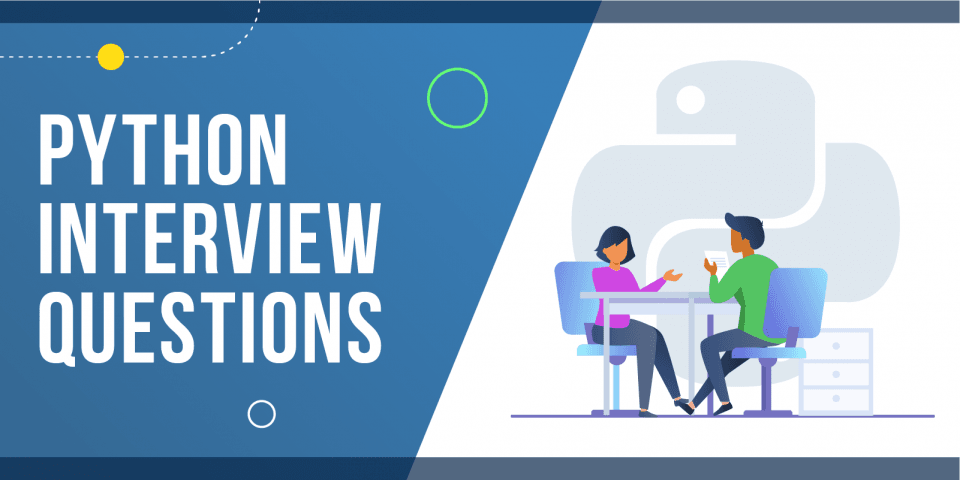Check our latest post!
Posted on 06/03/2023
2023 Python Interview Questions and Answers: A Comprehensive Guide for Beginners
Looking to ace your Python interview in 2023? Our comprehensive guide to the top Python interview questions and answers for beginners has got you covered. From data types to object-oriented programming, this guide covers all the essential topics you need to know to succeed in your Python interview. Whether you're a beginner or an experienced programmer, our guide provides the necessary insights to help you prepare for your Python interview and increase your chances of success.
By Manohar • 06/03/2023 • 9 min read
2023 Python Interview Questions and Answers: A Comprehensive Guide for Beginners

Python is a popular programming language that has gained popularity due to its simplicity, flexibility, and versatility. Many companies are now looking for Python developers to join their teams, making it important for job seekers to prepare well for their interviews. In this article, we will provide a comprehensive guide to the top Python interview questions and answers for beginners in 2023.
What is Python?
Python is a high-level, interpreted programming language known for its simplicity, readability, and ability to work on multiple platforms. It has a large standard library that provides a wide range of tools and modules, and it can integrate with other programming languages and applications.
What are the advantages of using Python?
Some of the advantages of using Python include its simplicity, ease of learning, and readability. It is also known for its vast standard library, which provides a wide range of tools and modules, as well as its ability to integrate with other programming languages and applications.
What are the data types in Python?
Python supports several data types, including integers, floats, strings, lists, tuples, and dictionaries. Integers are whole numbers, floats are decimal numbers, strings are sequences of characters, lists are ordered collections of elements, tuples are similar to lists but are immutable, and dictionaries are key-value pairs.
What is object-oriented programming in Python?
Object-oriented programming is a programming paradigm that focuses on objects and their interactions. In Python, objects are created from classes, which define the attributes and methods of the object. This approach allows for more efficient and organized code and is commonly used in larger projects.
What is a function in Python?
A function is a block of code that performs a specific task. Functions in Python can be defined using the "def" keyword, followed by the function name and a set of parentheses. You can also include parameters in the parentheses to pass values into the function.
What is the difference between a list and a tuple in Python?
Both lists and tuples are used to store collections of elements in Python. However, the main difference is that lists are mutable, while tuples are immutable. This means that you can change the elements in a list, but not in a tuple.
What is a module in Python?
A module is a file containing Python code that can be imported into other Python programs. Modules are used to organize code into reusable, shareable components and can be used to provide additional functionality to a program.
What is a lambda function in Python?
A lambda function is a small, anonymous function that can be defined on the fly. Lambda functions are often used for simple tasks, such as sorting or filtering data and are defined using the "lambda" keyword.
What is the difference between "==" and "is" in Python?
"==" is used to compare the values of two objects, while "is" is used to compare the identity of two objects. This means that "==" checks if two objects are equal in value, while "is" checks if they are the same object in memory.
What is the purpose of the "if name == 'main':" statement in Python?
The "if name == 'main':" statement is used to check if the current module is being run as the main program. This allows you to write code that can be used as a module in other programs but can also be run as a standalone program.
In conclusion, preparing for a Python interview can be challenging, but with a solid understanding of the language and its applications, you can increase your chances of success. The questions and answers provided in this article are just a starting point, and it's important to continue learning and practicing your Python skills to become a successful Python developer. Good luck with your interview!